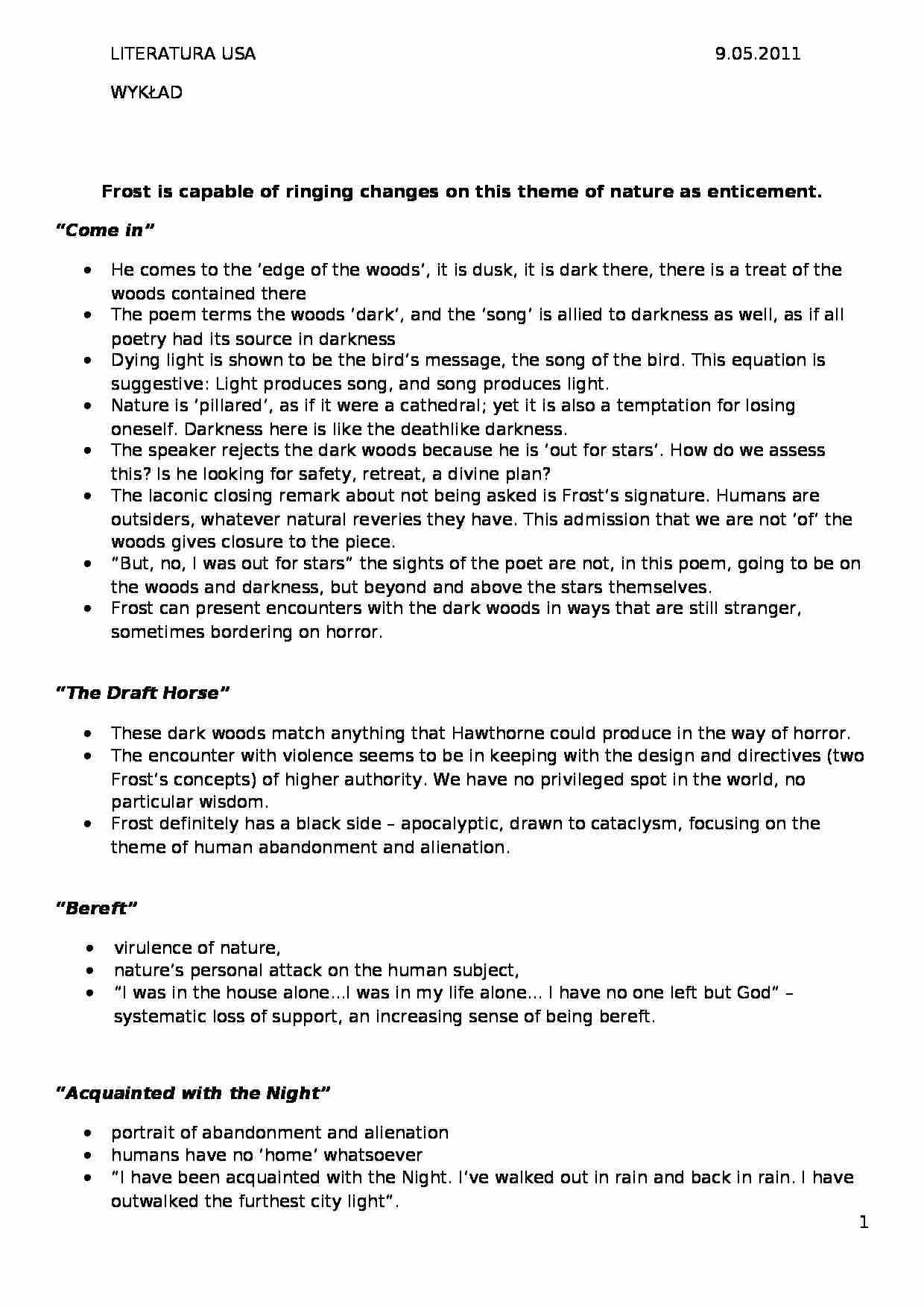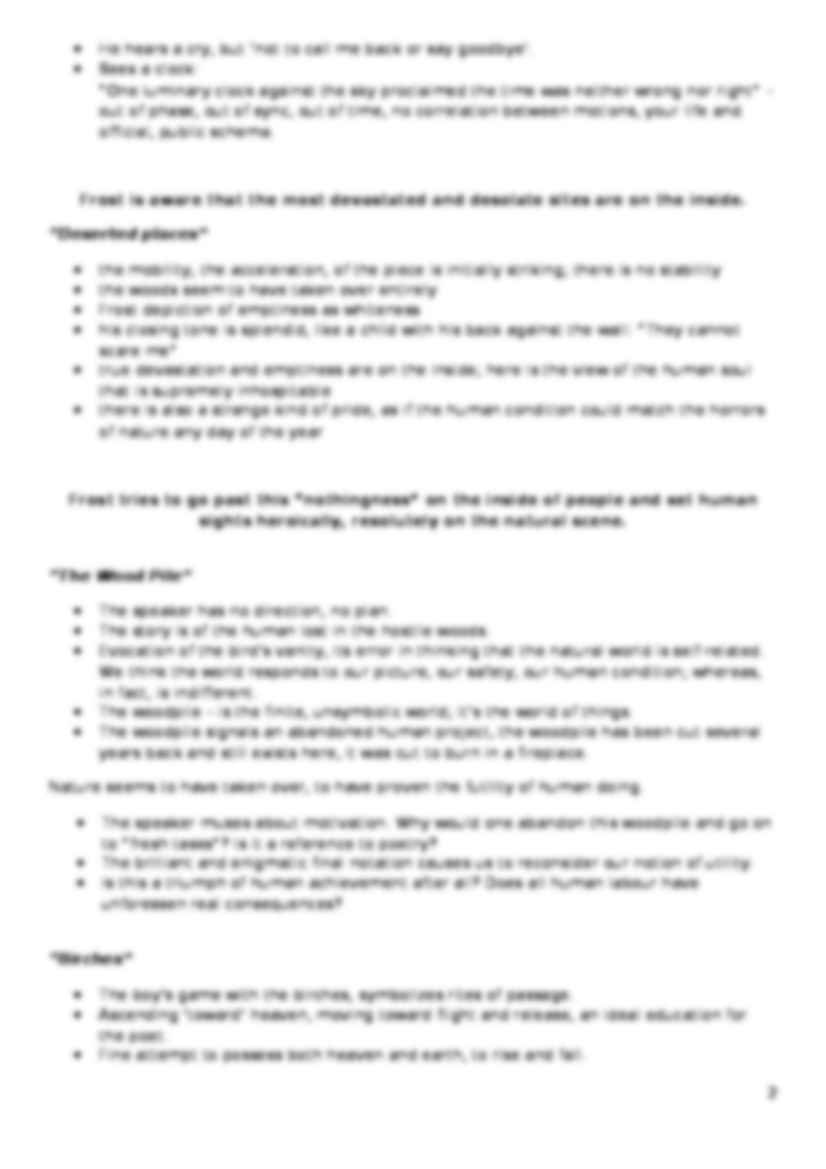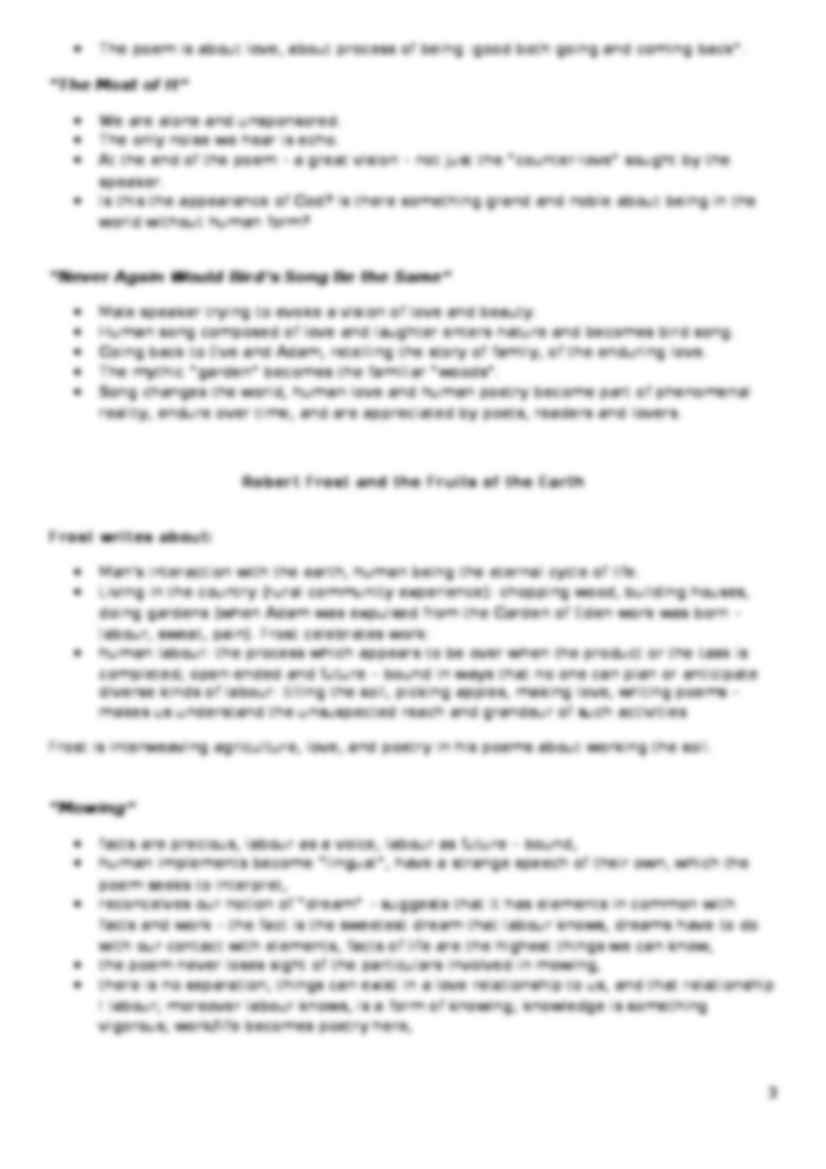LITERATURA USA 9.05.2011
WYKŁAD
Frost is capable of ringing changes on this theme of nature as enticement.
“Come in”
He comes to the `edge of the woods', it is dusk, it is dark there, there is a treat of the woods contained there
The poem terms the woods `dark', and the `song' is allied to darkness as well, as if all poetry had its source in darkness
Dying light is shown to be the bird's message, the song of the bird. This equation is suggestive: Light produces song, and song produces light.
Nature is `pillared', as if it were a cathedral; yet it is also a temptation for losing oneself. Darkness here is like the deathlike darkness.
The speaker rejects the dark woods because he is `out for stars'. How do we assess this? Is he looking for safety, retreat, a divine plan?
The laconic closing remark about not being asked is Frost's signature. Humans are outsiders, whatever natural reveries they have. This admission that we are not `of' the woods gives closure to the piece.
“But, no, I was out for stars” the sights of the poet are not, in this poem, going to be on the woods and darkness, but beyond and above the stars themselves.
Frost can present encounters with the dark woods in ways that are still stranger, sometimes bordering on horror. “The Draft Horse”
These dark woods match anything that Hawthorne could produce in the way of horror.
The encounter with violence seems to be in keeping with the design and directives (two Frost's concepts) of higher authority. We have no privileged spot in the world, no particular wisdom.
Frost definitely has a black side - apocalyptic, drawn to cataclysm, focusing on the theme of human abandonment and alienation. “Bereft”
virulence of nature,
nature's personal attack on the human subject,
“I was in the house alone...I was in my life alone... I have no one left but God” - systematic loss of support, an increasing sense of being bereft.
“Acquainted with the Night” portrait of abandonment and alienation
humans have no `home' whatsoever
“I have been acquainted with the Night. I've walked out in rain and back in rain. I have outwalked the furthest city light”. He hears a cry, but `not to call me back or say goodbye'.
Sees a clock: “One luminary clock against the sky proclaimed the time was neither wrong nor right” - out of phase, out of sync, out of time, no correlation between motions, your life and official, public schema.
Frost is aware that the most devastated and desolate sites are on the inside.
“Deserted places”
the mobility, the acceleration, of the piece is initially striking; there is no stability
(…)
… life.
Living in the country (rural community experience): chopping wood, building houses, doing gardens (when Adam was expulsed from the Garden of Eden work was born - labour, sweat, pain). Frost celebrates work:
human labour: the process which appears to be over when the product or the task is completed; open-ended and future - bound in ways that no one can plan or anticipate
diverse kinds of labour…
… continues (grass, cutting, hay...) alternation and change and result. The view of labour has a sense of futurity. We don't know the final consequences. The same true about poetry - poet dies, poetry lives. What looks over is not over, what looks fixed is not fixed. “Putting in the Seed”
planting crops, making love, and creating poetry
man - wife connection; merging of death and life (planting petals along…
... zobacz całą notatkę






Komentarze użytkowników (0)